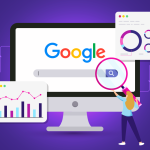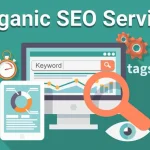Now Reading: Digital Marketing Solutions for Local Business Owners
- 01
Digital Marketing Solutions for Local Business Owners
Digital Marketing Solutions for Local Business Owners

Digital Marketing Solutions is no longer a luxury—it’s a necessity. For local business owners and digital marketing entrepreneurs, finding the right mix of strategies can transform a humble brand into a community staple and an online sensation. In this article, we’ll break down the digital marketing landscape, explore key strategies, and provide practical steps for building a robust digital marketing plan that resonates with your target audience.
Table of contents
- Introduction
- Understanding Digital Marketing
- Key Digital Marketing Strategies
- Building a Digital Marketing Plan
- Tools and Technologies for Digital Marketing
- Success Stories: Case Studies from Local Businesses
- Overcoming Challenges in Digital Marketing
- Future Trends in Digital Marketing
- Conclusion
- Frequently Asked Questions (FAQ)

Introduction
Welcome to the world of digital marketing solutions where creativity meets data-driven strategies. Whether you’re a local coffee shop owner looking to boost foot traffic or an emerging digital entrepreneur eager to carve out a niche online, the principles remain the same. With the right tools and a clear plan, you can captivate your audience, enhance engagement, and ultimately grow your business exponentially.
Digital marketing isn’t a one-size-fits-all approach. Instead, it’s a dynamic blend of tactics that includes SEO, content marketing, social media outreach, and much more. This article is designed to help you navigate through the maze of digital marketing strategies and implement solutions that work specifically for your business needs.
Understanding Digital Marketing
What is Digital Marketing?
Digital Marketing Solutions refers to the promotion of products or services through digital channels to reach consumers effectively. Unlike traditional marketing methods, digital marketing leverages online platforms, mobile devices, social media, and search engines to deliver personalized messages that drive engagement and conversion.
By tapping into data analytics and real-time feedback, businesses can quickly adapt their campaigns, ensuring that every dollar spent is geared toward maximizing ROI. Think of digital marketing as a finely tuned orchestra—each instrument (or strategy) plays a crucial role in creating a harmonious symphony that resonates with your audience.
Benefits of Digital Marketing for Local Businesses
Local businesses often face stiff competition from both large chains and online giants. Digital marketing levels the playing field by offering cost-effective strategies that can reach your target audience right in your neighborhood. Here are some key benefits:
- Cost Efficiency: Compared to traditional advertising, digital campaigns are often more affordable and measurable.
- Targeted Outreach: With precision targeting tools, you can reach your local audience with tailored messages.
- Enhanced Engagement: Interactive content and social media allow for direct communication with your customers.
- Real-Time Analytics: Immediate feedback helps you adjust your campaigns for optimal performance.
- Brand Visibility: A strong online presence boosts brand recognition and trust within your community.
Key Digital Marketing Strategies
Effective Digital Marketing Solutions is built on a foundation of tried-and-true strategies. Let’s dive into the essential techniques that will help you stand out.
SEO Optimization
Search Engine Optimization (SEO) is the backbone of digital marketing. When optimized correctly, your website becomes more visible to potential customers searching for products or services like yours.
On-Page SEO Techniques
On-page SEO involves optimizing individual web pages to rank higher in search engine results. Here’s how you can get started:
- Keyword Research: Identify high-impact keywords relevant to your business. Use tools like Google Keyword Planner or SEMrush to uncover terms that your audience is actively searching for.
- Quality Content: Create informative, engaging, and original content that addresses your audience’s pain points.
- Meta Tags and Descriptions: Craft unique meta titles and descriptions for each page to improve click-through rates.
- Header Tags: Use H1, H2, H3, and H4 tags to structure your content for both search engines and readers.
- Image Optimization: Include alt texts and compress images to improve load times and accessibility.
Off-Page SEO Strategies
Off-page SEO focuses on building your website’s reputation and authority outside of your own pages:
- Backlink Building: Develop relationships with reputable websites to earn quality backlinks.
- Social Media Signals: Share your content on social platforms to increase visibility and drive traffic.
- Guest Blogging: Contribute to industry blogs to establish yourself as a thought leader and gain exposure.
Content Marketing
Content marketing is more than just writing blog posts. It’s about creating valuable, relevant, and consistent content that attracts and retains your target audience. By telling compelling stories and offering actionable insights, you create an emotional connection with your readers. Think of it as the bridge between your business and your audience’s hearts.
Effective content marketing strategies include:
- Blog Posts: Regular updates that educate and inform.
- Infographics: Visual representations that simplify complex ideas.
- Videos: Engaging content that’s easily shareable and memorable.
- E-books & Whitepapers: In-depth resources that position you as an expert.
- Podcasts: Audio content that builds a loyal community of listeners.
Social Media Marketing
Social media platforms are where conversations happen. They’re not just for sharing memes or updates; they’re vital channels for engaging with customers in real time.
Key strategies include:
- Platform Selection: Focus on platforms where your audience is most active. For many local businesses, Facebook, Instagram, and LinkedIn are great starting points.
- Content Calendar: Develop a posting schedule that maintains consistency and relevance.
- Engagement Tactics: Respond to comments, ask questions, and run interactive polls to foster a community feel.
- Paid Advertising: Consider using paid social media ads to boost your reach, especially when launching new products or promotions.
Email Marketing
Despite the rise of social media, email remains one of the most powerful tools in digital marketing. It offers direct access to your customers’ inboxes and can be highly personalized. Here’s how to make the most of email marketing:
- Segmentation: Divide your mailing list into segments based on behavior, preferences, or demographics.
- Personalization: Use personalized greetings and tailor content based on past interactions.
- Automation: Implement automated workflows to nurture leads and drive conversions.
- A/B Testing: Experiment with subject lines, images, and calls-to-action to see what resonates best with your audience.
Building a Digital Marketing Plan
A solid digital marketing plan is your roadmap to success. Without a plan, even the best strategies can falter. Let’s outline the steps you need to take.
Identifying Your Target Audience
Knowing who you’re talking to is the first step in any successful marketing campaign. Consider:
- Demographics: Age, gender, income level, education, etc.
- Geographics: Focus on the local community if you’re a local business.
- Psychographics: Interests, values, and lifestyle choices that define your audience.
- Behavioral Data: Purchase history, online behavior, and engagement patterns.
By clearly defining your target audience, you can tailor your messaging to address their unique needs and preferences.
Setting Goals and KPIs
Without clear goals, it’s difficult to measure success. Define your objectives with SMART (Specific, Measurable, Achievable, Relevant, Time-bound) goals. Examples include:
- Increasing website traffic by 30% over six months.
- Growing your social media following by 20% in the next quarter.
- Boosting conversion rates through targeted email campaigns.
Once your goals are set, identify key performance indicators (KPIs) that will help you track progress. These may include website traffic, conversion rates, social media engagement, and customer acquisition costs.
Budgeting for Digital Marketing
Every business has a unique budget, and digital marketing is no exception. Consider these factors:
- Cost of Tools and Software: SEO tools, CRM systems, and analytics platforms can vary in price.
- Content Creation: Outsourcing content creation or hiring in-house talent.
- Paid Advertising: Allocate funds for social media ads, PPC campaigns, and display advertising.
- Training and Development: Invest in courses or workshops to stay updated on the latest trends.
A well-planned budget ensures that you maximize your ROI while maintaining flexibility for unexpected opportunities.
Tools and Technologies for Digital Marketing
Embracing the right tools can elevate your digital marketing game to new heights. Here are some essential categories:
Analytics and Data Tools
Understanding your audience and tracking performance is crucial. Tools like Google Analytics, Moz, and Ahrefs provide insights into website traffic, user behavior, and keyword performance. With these insights, you can refine your strategies and make data-driven decisions.
Automation Tools
Automation tools such as HubSpot, Mailchimp, and Hootsuite simplify repetitive tasks. They help manage social media posts, email campaigns, and customer interactions, allowing you to focus on creative and strategic endeavors.
CRM Systems
Customer Relationship Management (CRM) systems like Salesforce and Zoho CRM enable you to manage customer interactions efficiently. They help streamline communication, track sales pipelines, and nurture leads through personalized follow-ups.
Success Stories: Case Studies from Local Businesses
Success in digital marketing isn’t just theory—it’s proven by real-life examples. Consider the story of a small bakery that transformed its fortunes through a robust digital strategy. By focusing on local SEO, engaging social media campaigns, and regular content updates, the bakery saw a 50% increase in foot traffic and a significant boost in online orders.
Another example is a local gym that leveraged email marketing and personalized fitness content to create a loyal community. By segmenting their email list and offering exclusive promotions, they not only retained existing members but also attracted new clients through referrals and positive word-of-mouth.
These stories are more than just numbers—they are testimonies of how digital marketing can build trust, foster relationships, and drive growth, even in highly competitive local markets.
Overcoming Challenges in Digital Marketing
Every journey has its bumps. Digital marketing comes with its own set of challenges that can seem daunting at first, but with the right strategies, they can be overcome.
- Staying Updated: The digital world evolves rapidly. Regular training and industry research can help you stay ahead of trends.
- Resource Limitations: Small businesses might not have the budget for expensive tools. Focus on cost-effective strategies like content marketing and organic social media growth.
- High Competition: Standing out in a crowded market requires a unique brand voice and innovative strategies. Experiment, measure, and pivot as needed.
- Technology Overload: With so many tools available, it can be overwhelming to choose the right ones. Start small, and gradually incorporate additional tools as your business grows.
Remember, each challenge is an opportunity in disguise. By approaching obstacles with creativity and determination, you not only solve problems but also discover new avenues for growth.
Future Trends in Digital Marketing
The Digital Marketing Solutions landscape is constantly evolving, and staying ahead of the curve can be a game-changer. Here are a few trends to watch:
- Artificial Intelligence (AI) and Machine Learning: AI is revolutionizing customer service, content personalization, and data analysis. Chatbots and recommendation engines are just the beginning.
- Voice Search Optimization: With smart speakers becoming ubiquitous, optimizing for voice search is critical. Think conversational keywords and natural language.
- Video Content Dominance: Video continues to reign supreme. Live streaming, short-form videos, and interactive content are capturing audiences worldwide.
- Personalization and Customer Experience: In an era where consumers expect tailored experiences, businesses that invest in personalization will stand out.
- Sustainability and Social Responsibility: Consumers are increasingly valuing brands that demonstrate ethical practices and community involvement. Aligning your digital strategies with these values can forge deeper connections.
Embracing these trends can not only enhance your digital marketing efforts but also future-proof your business in a rapidly changing environment.
Conclusion
Digital marketing solutions offer endless possibilities for local business owners and digital marketing entrepreneurs. By understanding the fundamentals, implementing key strategies like SEO, content marketing, social media outreach, and leveraging cutting-edge tools, you set the stage for sustained growth and lasting customer relationships.
Remember, the journey of digital marketing is iterative. Every campaign is a learning opportunity, and even small wins can lead to significant transformations over time. Stay curious, keep experimenting, and let data guide your decisions. With passion and persistence, you can turn challenges into stepping stones toward success.
Frequently Asked Questions (FAQ)
There isn’t a one-size-fits-all answer. However, many local businesses see great success by focusing on SEO optimization combined with active social media engagement. Tailoring these strategies to your local community’s needs can yield impressive results.
Begin with the basics: conduct keyword research, create high-quality content, and optimize your website’s on-page elements. Many user-friendly tools are available that simplify the process. Additionally, consider online tutorials or partnering with an SEO specialist.
Absolutely. Social media platforms offer an excellent way to engage directly with your local audience. By sharing engaging content and responding to customer inquiries, you build trust and foster a sense of community around your brand.
Your budget depends on your business size, goals, and available resources. Start by allocating funds for the most critical areas—content creation, SEO tools, and social media ads—and adjust as you track the performance of your campaigns.
Keep an eye on advancements in AI, the growing importance of voice search, and the continued dominance of video content. Staying adaptable and continually learning will help you take full advantage of these emerging trends.






















